Marketing can be overwhelming because it relies on many interconnected systems. If these systems fail to work together seamlessly, your business can pay the price.
With 20 years in marketing, including 10 leading remote, global teams, I know what makes a marketing department thrive and what causes its downfall. In this post, I’ll identify 10 red flags of a struggling marketing team and provide actionable tips on how to turn things around.
1. Marketing Led by a Committee
Impact: When everyone has a say, nobody is accountable. Decisions get bogged down. Creativity falters, and progress stalls. Imagine a tech startup where every department has a voice in marketing campaigns. The legal team, sales director, and operations head all weigh in. By the time everyone’s opinions are considered, the campaign loses its edge and momentum.
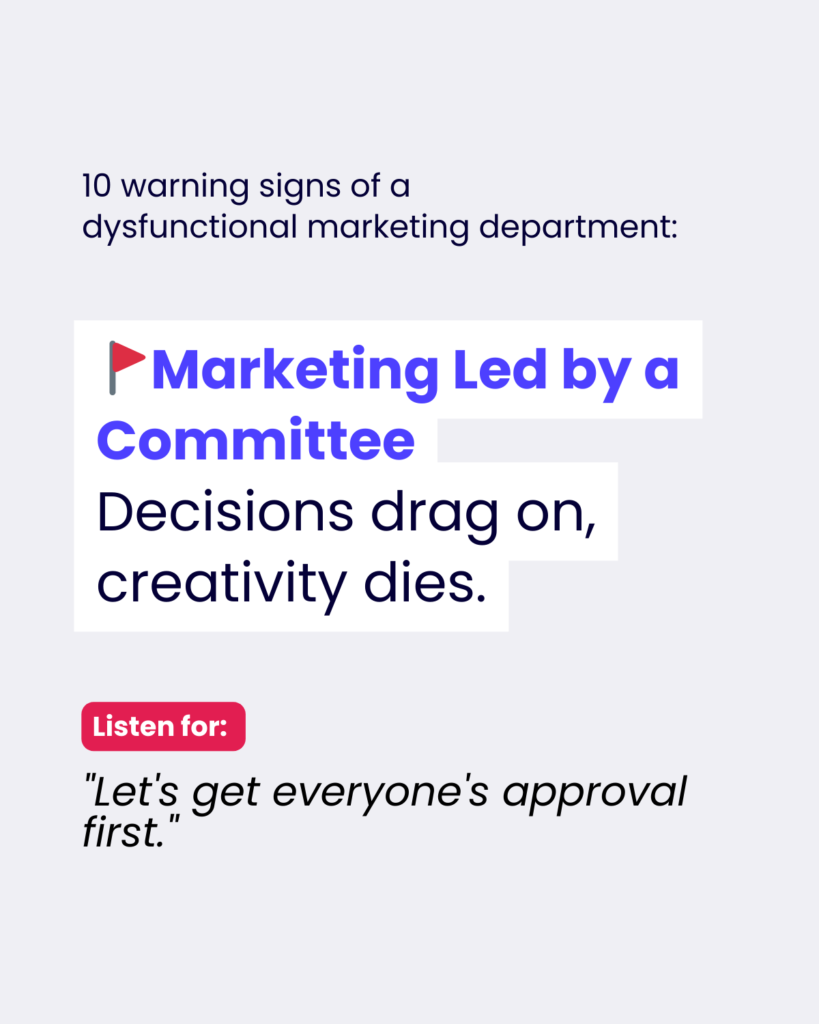
Improvement Suggestions:
- Establish a decision owner for each project.
- Adopt the “Disagree and Commit” rule. Encourage healthy debate. But once the leader decides, everyone should support the decision.
- Set decision deadlines to avoid endless loops.
2. No Tangible Results
Impact: Money spent without measurable results is money wasted. You’re only guessing without clear metrics. This makes it impossible for leaders to make confident decisions. For instance, a company might spend thousands on a campaign, but if they can only say “it was nice”, that’s not a strategy – it’s just a gamble.
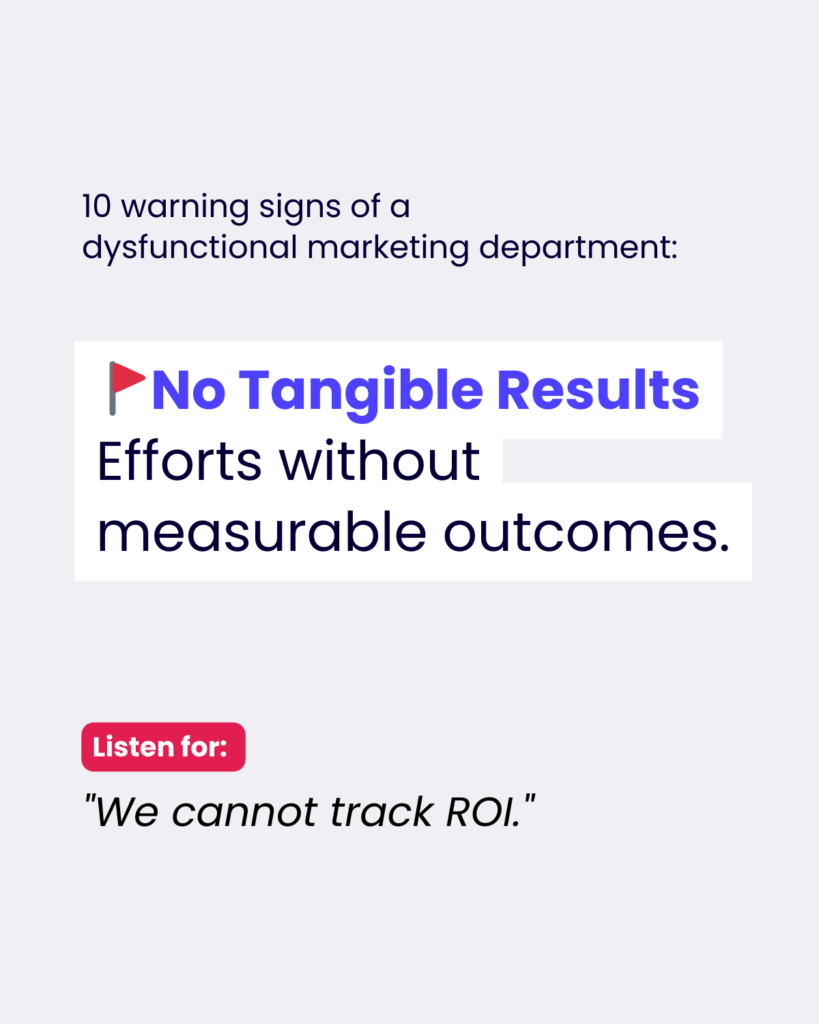
Improvement Suggestions:
- Set measurable goals for every campaign. Use specific metrics like leads generated, conversion rates, and return on investment (ROI).
- Build a Scorecard of Key Performance Indicators (KPIs) for every channel. For example, track open rates and click-through rates for email marketing.
- Establish a system for regular reporting and review.
3. Overwhelming Workload
Impact: When teams are overwhelmed, they focus on putting out fires, leaving little time for driving results. As a result, campaigns feel rushed, and important tasks get neglected. I often see marketing teams trying to handle too much, including social media, emails, blog updates, and events. This usually means they’re too stretched out to meet their deadlines.
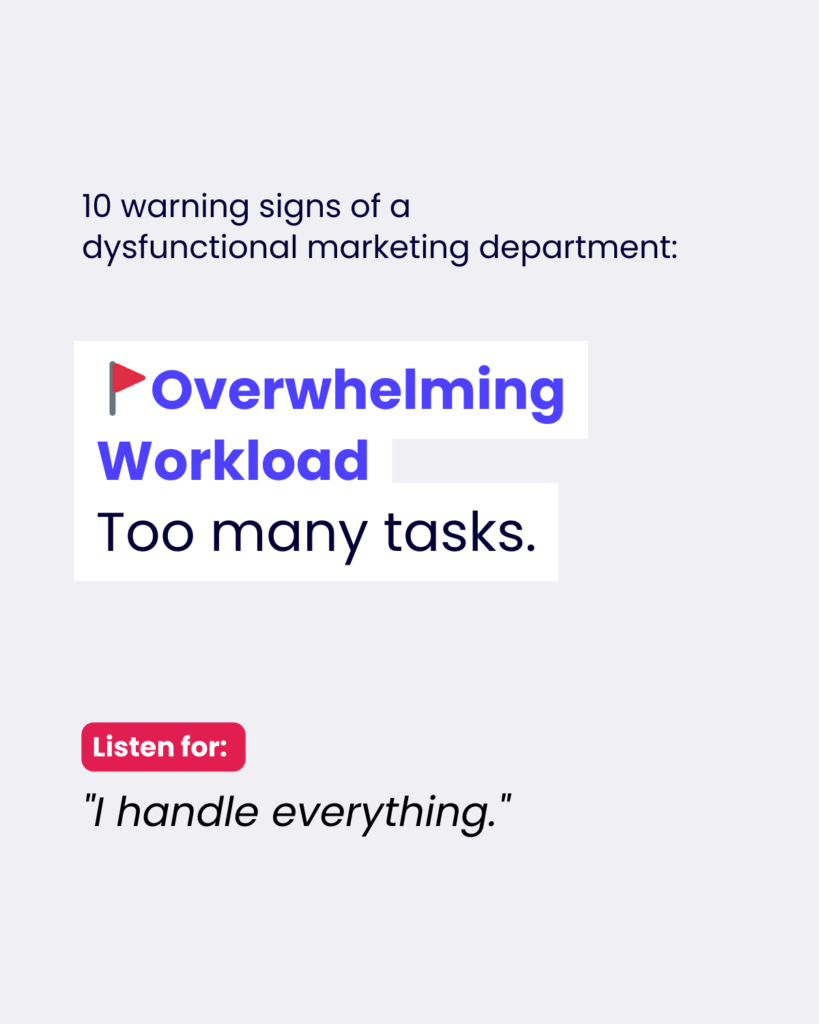
Improvement Suggestions:
- Identify what’s essential. Focus on the top 2-3 activities that drive results.
- Say no to low-value work. Don’t try to be on every platform. Focus on where your audience is most active.
- Automate or delegate tasks like reporting and scheduling.
4. Constant Brainstorming Without Execution
Impact: Brainstorming without action is an illusion of progress. Ideas are worthless unless you act on them. Picture a team with whiteboards overflowing with ideas, holding meeting after meeting. But none of those ideas ever becomes a reality.
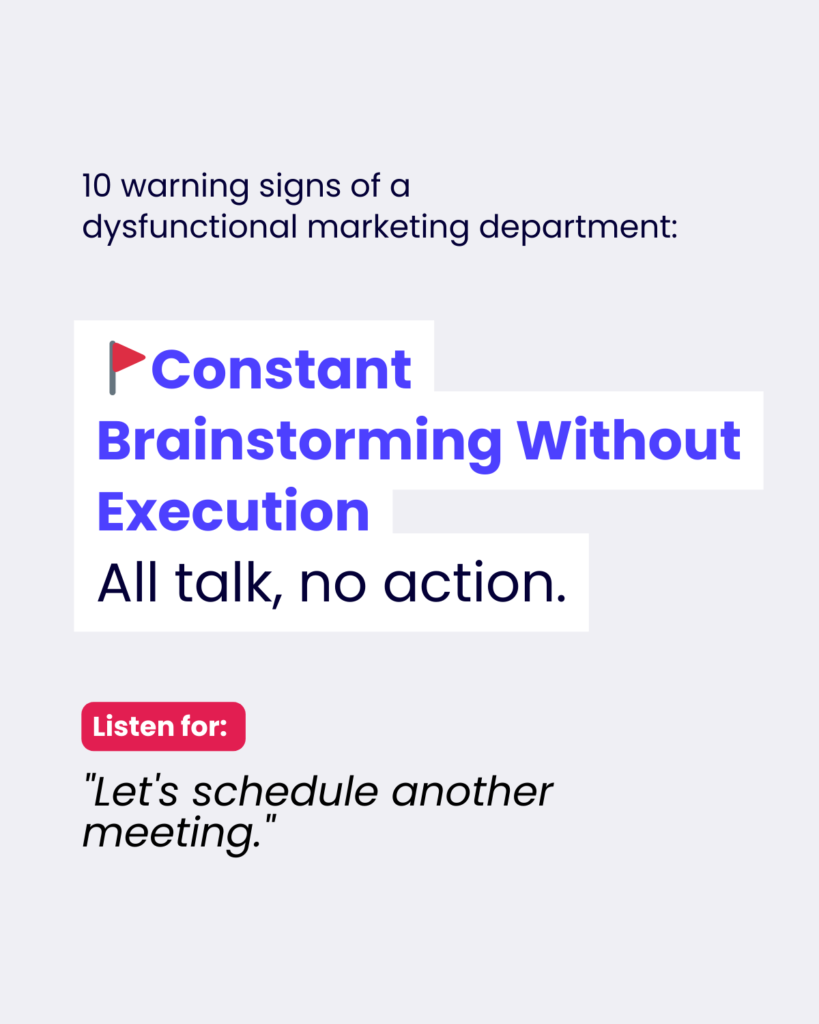
Improvement Suggestions:
- Set a quarterly plan with 3-5 key priorities. Execute that plan. Avoid constant brainstorming.
- Turn ideas into actionable tasks. Assign owners and deadlines.
- Adopt the 80/20 rule. Focus on the 20% of work that drives 80% of the results.
5. Unrealistic Expectations
Impact: Unrealistic goals can demotivate teams and lead to failure. Viral success is unpredictable and can’t be forced. It’s like winning the lottery. A CEO who demands a viral campaign without a budget is guaranteeing the marketing team’s failure.
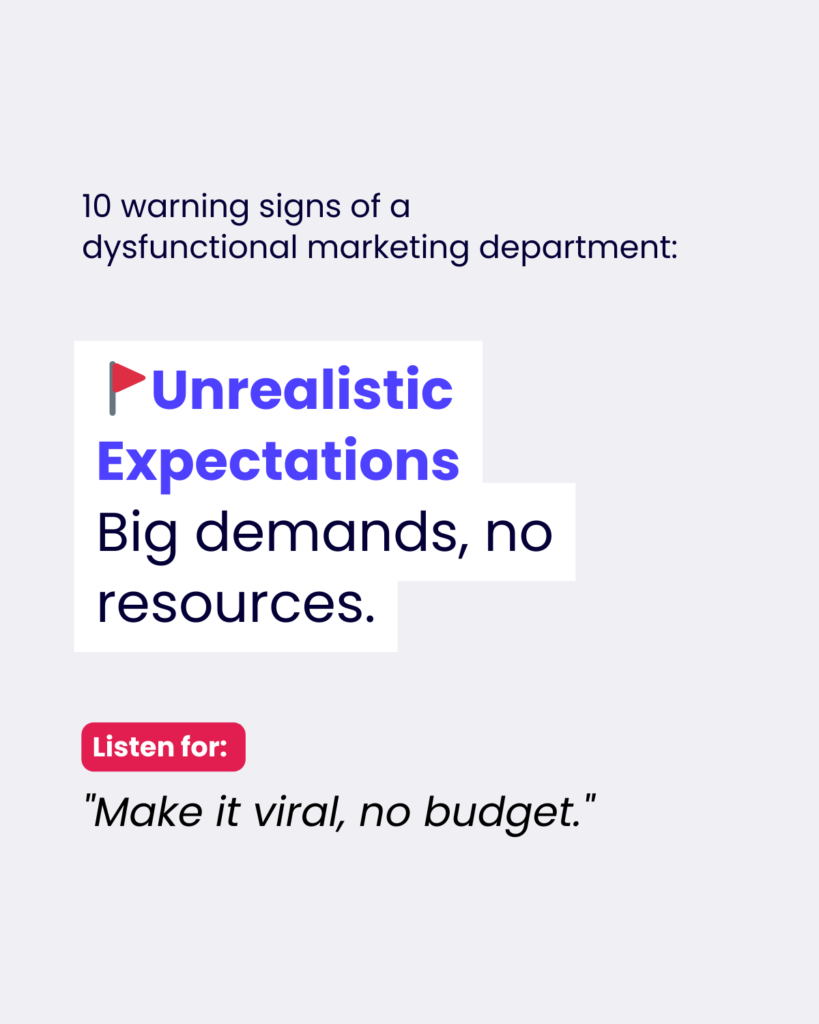
Improvement Suggestions:
- Set realistic goals based on data. Use past campaigns and industry benchmarks.
- Focus on the right metrics. Prioritise leads, email sign-ups, and sales conversions.
6. Toxic Work Environment
Impact: A toxic environment is poisonous. It destroys morale, affects performance, and hurts your brand. Imagine a marketing department where stress is high, burnout is common, and employees are always leaving. In this kind of environment, achieving goals is a struggle.
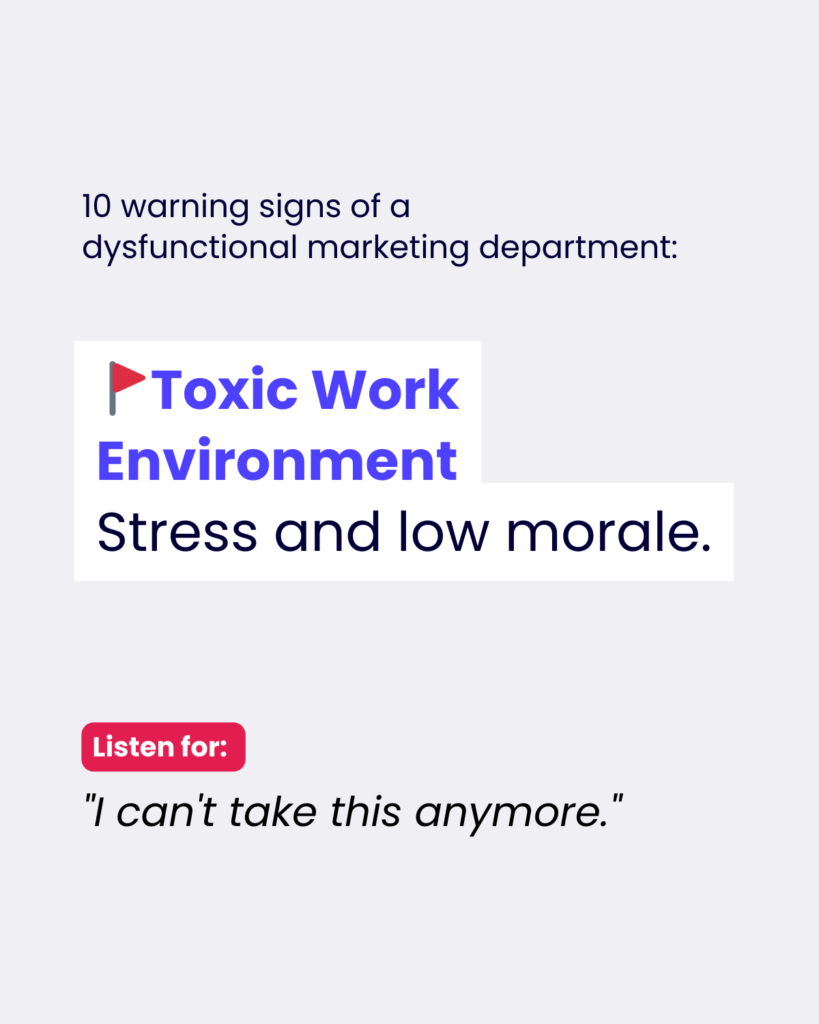
Improvement Suggestions:
- Identify the root cause. Talk to your team and look for common themes.
- Set a clear tone from leadership. Be transparent, set expectations, and lead by example.
- Support employee well-being. Address workload, create boundaries, and offer support.
7. Fear, Blame, and Defensiveness
Impact: When fear rules, no one takes accountability. Mistakes are seen as failures, not opportunities. Innovation stops, and the brand stagnates. Think of a company where every mistake leads to finger-pointing. No one wants to take risks, and creativity suffers.
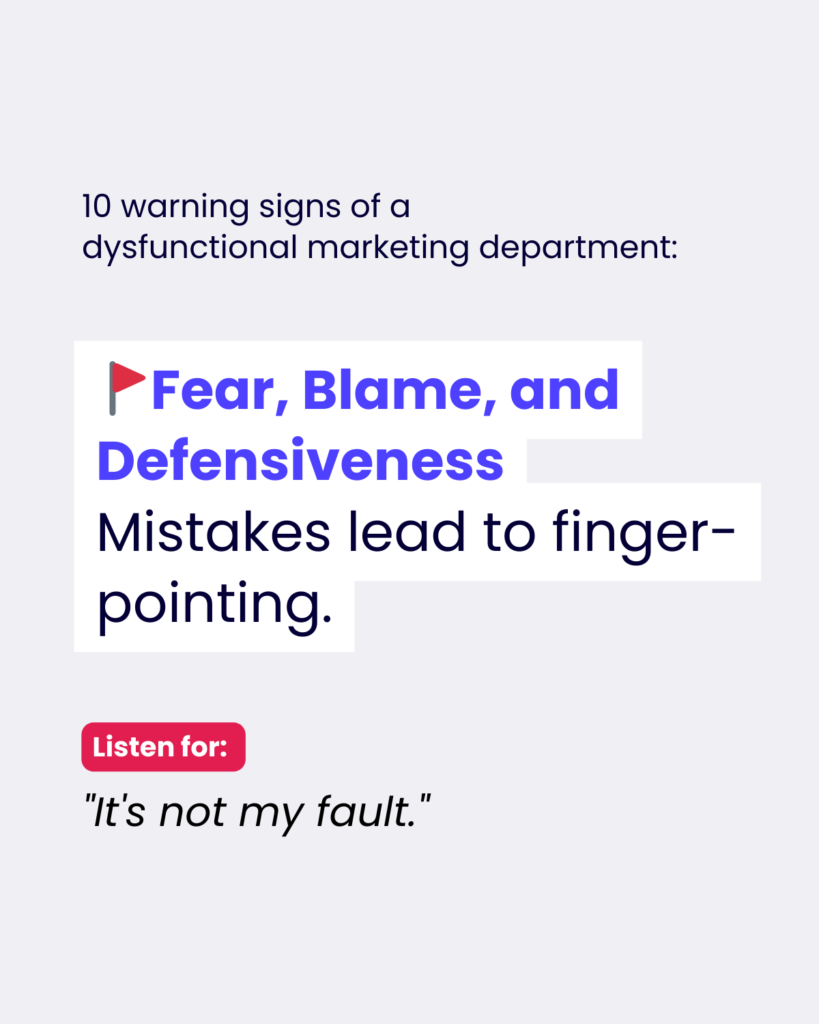
Improvement Suggestions:
- Normalise mistakes. Encourage learning from failures.
- Foster open communication. Create a space for constructive feedback and solutions.
- Encourage risk-taking. Reward experimentation and view failure as a stepping stone.
8. Poor Tools and Technology
Impact: Outdated tools slow you down and limit insights. You are operating at a disadvantage. Imagine a company using outdated software that doesn’t integrate with other systems. They waste time on manual tasks and miss valuable customer data.
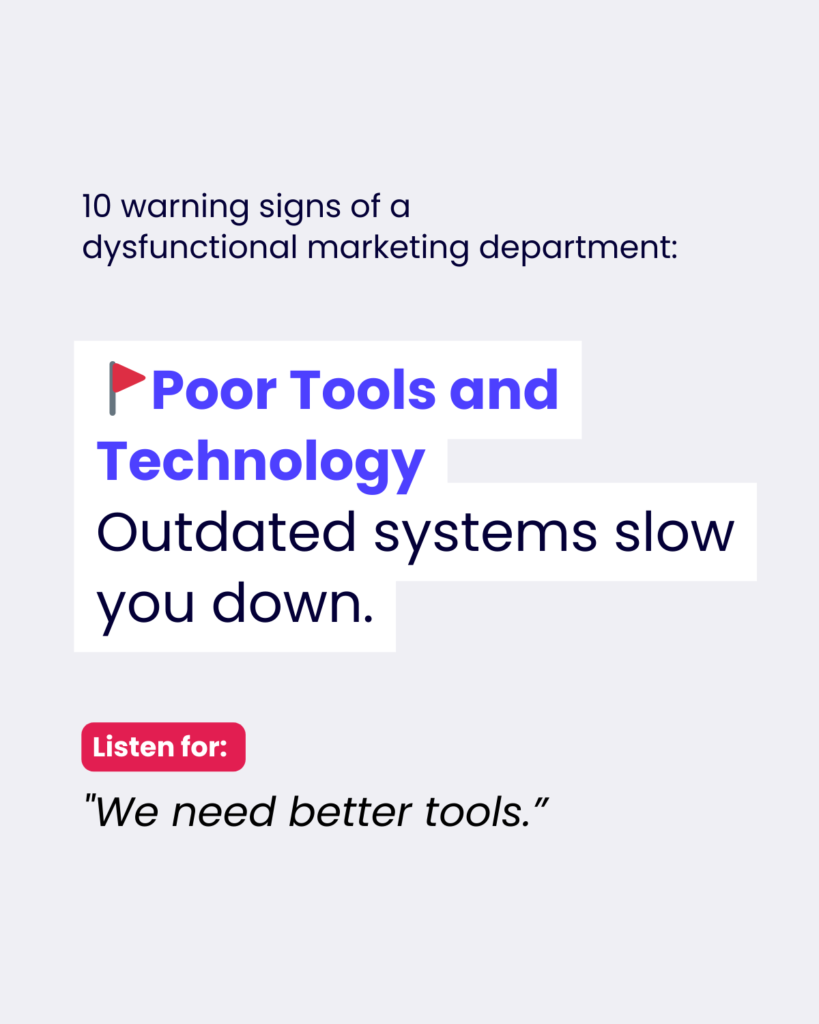
Improvement Suggestions:
- Start with automation. Look for tasks that can be automated, such as email marketing and social media posting.
- Consider the ROI, not just the cost. A tool that improves efficiency and leads to conversions is worth the investment.
9. Lack of Respect for Marketing Expertise
Impact: When non-marketers call the shots, you get bad decisions. Resources are wasted, and opportunities are missed. Imagine a company where the sales team dictates the marketing strategy. They may push for tactics that seem cost-effective but ignore long-term impact or audience needs.
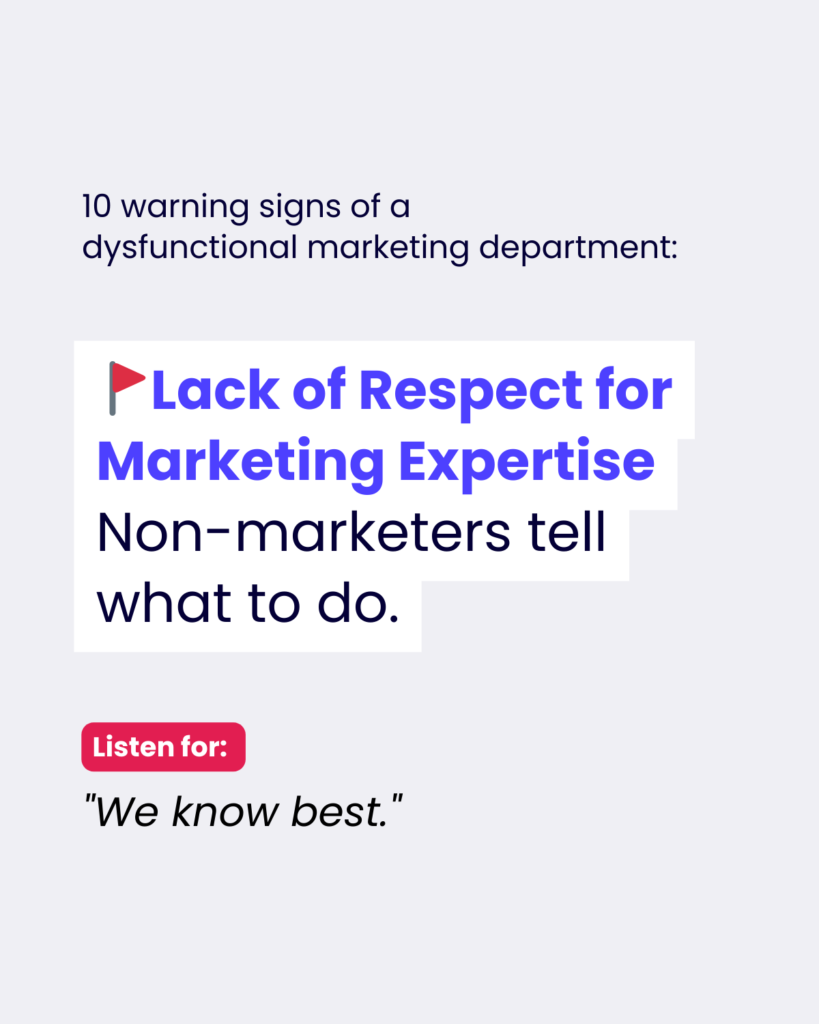
Improvement Suggestions:
- Educate and involve stakeholders early. Explain the “why” behind marketing decisions.
- Ensure ownership and empowerment. Give marketing professionals control over their projects.
- Encourage open communication. Be open to feedback, but maintain your ground on best practices.
10. Inconsistent Branding and Errors
Impact: Errors damage your credibility and erode trust. Imagine a company with typos in its marketing materials and mismatched visuals. This makes it look unprofessional and unreliable.
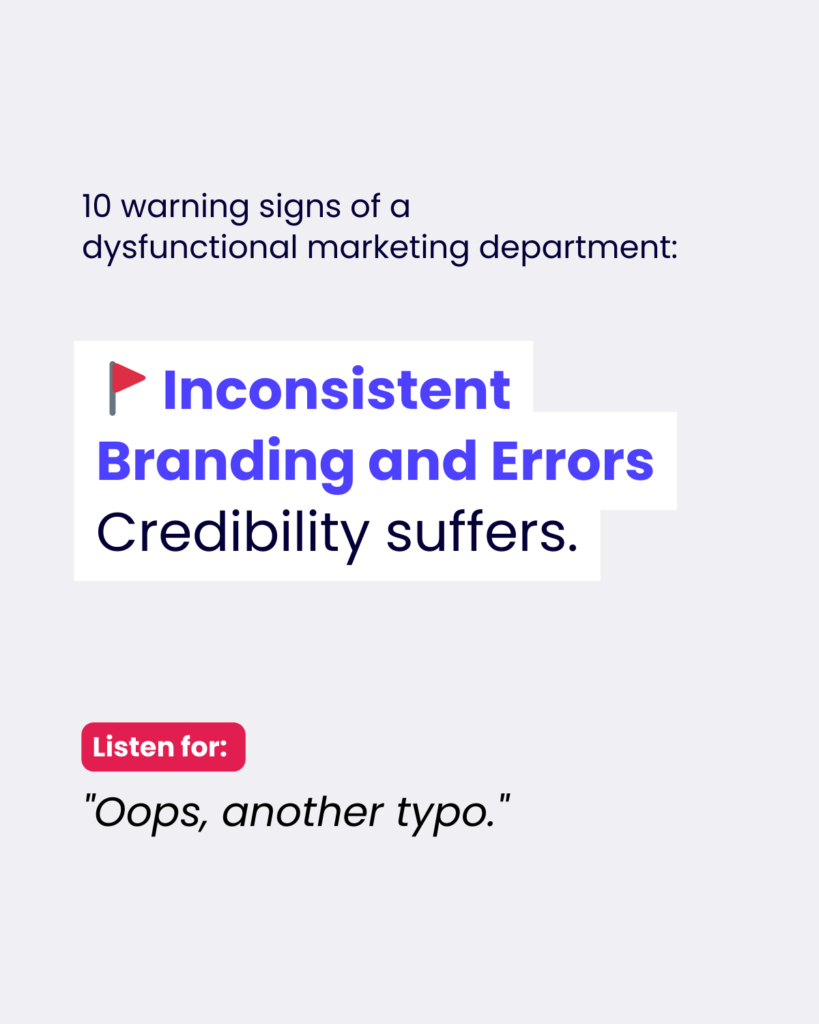
Improvement Suggestions:
- Focus on perfection, not quantity. Prioritise high-quality work over a large volume of content.
- Set standards and hold everyone accountable. Create clear brand guidelines and enforce them.
- Create checks and balances. Put in place a review process to catch errors before content goes live.
By addressing these common marketing dysfunctions, you can build a more effective marketing operation that drives growth and helps your company achieve its goals. With over 20 years of experience, I know how critical it is to identify and tackle these issues early.
Here’s how I can help your company:
- I’ll work with you to define roles, assign responsibilities, and empower your team to take ownership of their work.
- I’ll help you define KPIs, track results, and make data-informed decisions that keep your marketing efforts on target.
- I’ll help you optimize your processes, introduce automation, and free your team to focus on high-impact work.
- I’ll work with you to create a culture of trust, respect, and open communication that drives better collaboration and productivity.
- I’ll help you develop brand guidelines and implement quality control processes to ensure your marketing materials reflect your company’s professionalism.
Don’t let marketing dysfunction hold your company back. Book a 15-minute call with me today to learn how a fractional CMO can transform your marketing and drive real results.
